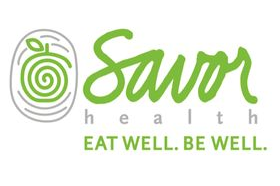The Sugar and Cancer Question
The relationship between sugar and cancer is one of the most commonly discussed questions among cancer patients. Whether on the internet, in the waiting room, or in an online forum, many patients question if sugar intake is related to their lung cancer diagnosis. We will explore this popular topic and answer the question of whether lung cancer patients should avoid sugar in their diet.
The Basics of Sugar
All of the carbohydrates you eat turn to glucose in the body. Glucose fuels every cell in your body, and if you have cancer, it fuels the cancer cells as well. Avoiding all sugar and carbohydrate in the diet would not completely starve the cancer because other complex carbohydrates and nutrients in your diet are also broken down into glucose to provide energy to all cells. However, a diet high in sugar is not a healthy choice for many other reasons.
First, a diet high in sugar is linked to obesity, which is a risk factor for 11 different types of cancer, including breast, colon, and endometrial cancers. High sugar diets also cause the body to release more insulin, which can create a more cancer-friendly environment. Making healthy choices when choosing carbohydrates is the key to moderation and a healthy balanced diet during and after cancer treatment.
Refined sugar vs. Natural sugar
If you are struggling with weight loss or poor appetite during your cancer treatment, eating higher calorie meals and snacks can provide adequate calories for weight gain while giving your body health benefits. Increasing amounts of refined sugars, however, is not beneficial because they are “empty calories” that do not contain added nutrition benefit or healthful ingredients that a cancer patient needs to stay strong and healthy during and after treatment. Refined sugar is found in table sugar, confectioners’ sugar, candies and baked goods. Natural sugars, such as honey, pure maple syrup, and dates are made in nature and free of artificial ingredients. In addition, honey has cancer-fighting antioxidants, while maple syrup has been shown to have anti-inflammatory properties. Dates and coconut sugar are considered natural sweeteners and can be used in healthy treats, like truffles and bars. They contain vitamins, minerals, and healthy amount of fiber.
Being mindful of refined sugar intake does not mean you have to say goodbye to all desserts. The key is moderation; save desserts and sweets for special occasions or celebrations. If cancer treatment gives you a stronger desire for sweet foods, which can be common with certain types of medications like steroids, aim to choose healthier desserts such as frozen yogurt with fruit, dark chocolate, or desserts made with natural sugars like honey, maple syrup or agave.
Choosing Healthy Carbohydrates
When you are actively fighting cancer is important to eat food that will not only fuel your body, but provide necessary nutrients, like fiber, protein, and vitamin and minerals. Eating a diet higher in refined sugar means you are not eating as much of the food that will benefit your body like fruits, vegetables, whole grains, and lean meats. Choosing whole grain carbohydrates instead of simple carbohydrates will provide your body with more nutrients to maintain good nutrition during treatment. Whole wheat pasta, brown rice or quinoa, and whole grain bread are good higher fiber alternatives to their “white” counterparts.
Importance of Dietary Fiber
Your body needs carbohydrate for fuel, but that is not its only purpose. Carbohydrates are one of the best sources of dietary fiber, which is essential for digestive health. Fiber is especially important for cancer patients. Many cancer medications can cause constipation, which can be an uncomfortable issue to manage. Increasing your healthy carbohydrate intake through whole grains, fruits, and vegetables can promote regularity and help manage constipation. Fiber is also beneficial for heart disease and weight control. Eating an adequate amount of fiber can help keep you feeling full in between meals and prevent unnecessary weight gain, which can lead to obesity.
Putting it All Together
Getting a lung cancer diagnosis and undergoing lung cancer treatment leave many searching for answers. Many seek to make healthy changes in their diets to help keep them strong and healthy during and after cancer treatment. While sugar is a common food ingredient that patients pay more attention to, it is important to understand why it is important and how to select the best sources of carbohydrate for your health. Choosing healthier complex carbohydrates more often over refined sugars provides your body best nutritional benefit during and after your cancer treatment.
~~~
Looking for instant and personalized nutrition advice? Check out Ina®, Your Personal Intelligent Nutrition Assistant. You can communicate with Ina® 24/7 to receive clinically appropriate and “on demand” nutrition support and guidance. She’ll respond with personalized nutrition tips, recipe, and answers to your questions—no phone calls or appointments necessary.
Visit LUNGevity’s website to learn more about Ina®. Click here to sign-up for Ina®.

Savor Health is a provider of personalized nutrition solutions designed exclusively for cancer patients based on evidence-based science and clinical best practices and provided by a team of oncology-credentialed registered dietitians.
Submit your questions here and the experts at Savor Health may answer it in an upcoming blog!
